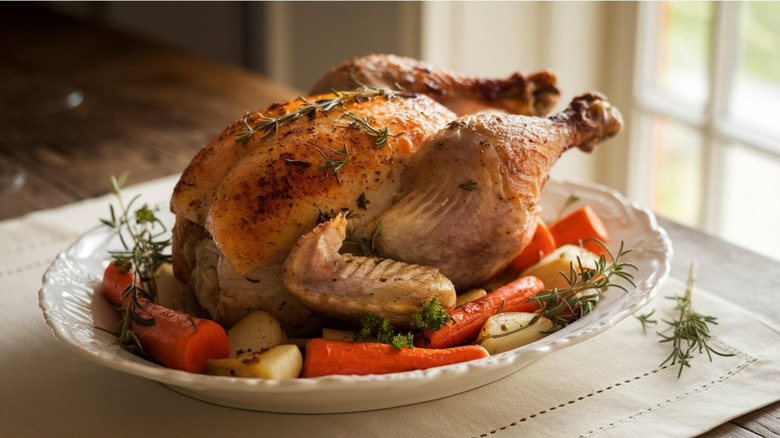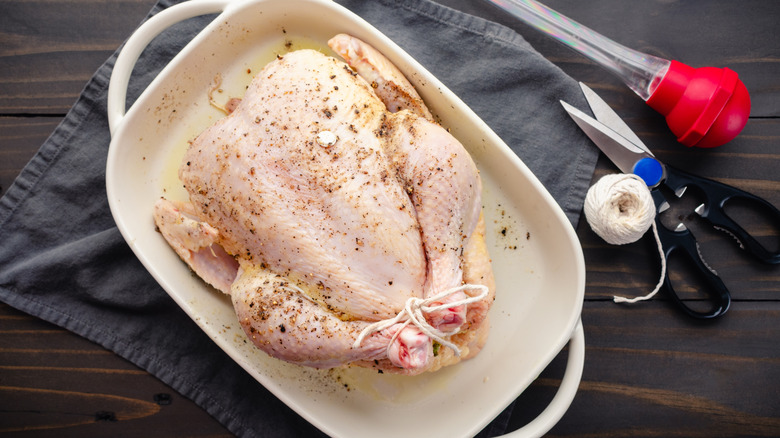The Salt Ratio To Remember For Seasoning Roast Chicken
Roast chicken is a classic for a reason: It's a simple crowd-pleaser that has the potential to be a showstopper, from flavorful, crisped skin to juicy, tender meat. In pursuit of that dreamy dinnertime bird, the home chefs among us spend time learning how to perfect the roast chicken, from learning the most classic recipe to looking for inspiration in Julia Child's preferred roast poultry method. There's one step you'll find across various approaches which seems to guarantee stellar texture and flavor results — dry-brining the chicken with salt. All it takes is understanding the basics, like exactly how much salt to use. For clear guidance, we turned to an expert.
"A good ratio is about 1 teaspoon of kosher salt for 1 pound of chicken," says Chef Bradley Borchardt, Strategic Account Chef for Cargill Protein. Borchardt adds that this dry brine can be done to chicken that is whole or in pieces — the proportion of salt to bird would remain the same. In general, when planning how much chicken you need for hosting dinner, it's thought that you should have about ⅓ of a pound per person. If you're cooking for eight, you'd err on the side of having a little more and want to roast about three pounds of chicken, which would require three teaspoons of salt per Borchardt's recommendation.
Why dry-brining with salt is important
Dry-brining your roast chicken before, well, roasting it, is crucial. The salt helps facilitate a browned crust-like crispness for the skin, and it also ensures that juicy, tender meat because it actually manipulates the meat's protein structures so they can retain some moisture. The salt attracts juices to the chicken's surface, mingles with that moisture, and settles into the meat as a salty, savory, juicy burst of flavor and texture in every bite.
In order for this process to fully play out and reach maximum juiciness potential, Bradley Borchardt advises that you do the dry brine with salt at least one hour before roasting. Let the bird sit, the salt working that magic of drawing the moisture out and then re-absorbing. You could even go as long as 72 hours, storing the salted chicken in the fridge. If you rush the time between the salting and the oven, this step might not be complete and you could have had juicier chicken. As Borchardt mentioned, use kosher salt. Its nice, big, coarse crystals allow for easy pinching, and because it doesn't have anti-caking agents and you can efficiently measure it, it's much harder to over-season with kosher salt. Let other seasonings wait until right before you place the chicken in the oven — you can brush it with butter or olive oil and sprinkle black pepper and any other herbs and spices you like.

